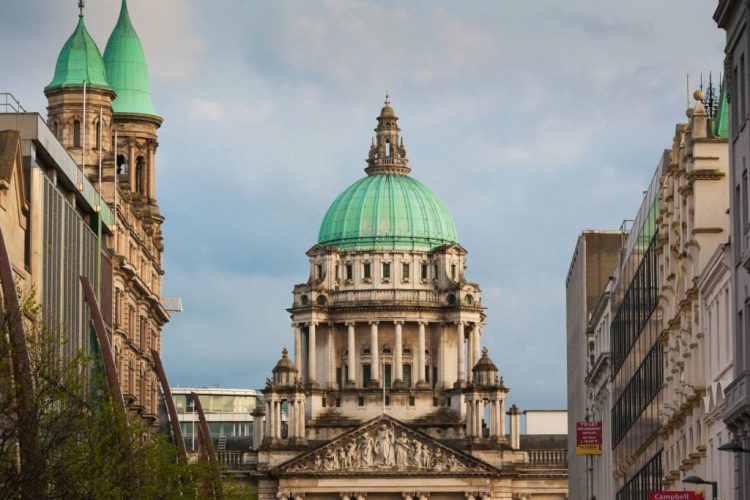The absence of the Northern Ireland government has led the UK to bear responsibility for harming community well-being. The impact of the government formation on Northern Ireland spans various dimensions. Community health and education challenges have arisen due to the lack of government, significantly affecting Northern Ireland’s society. Additionally, the restoration of the Executive is crucial for the region’s financial stability, and the wrong decisions made by the UK government pose a threat to Northern Ireland’s prosperity.
DUP’s withdrawal from Stormont institutions
As Sky News says, the 1998 Good Friday Agreement determines how the government functions in Northern Ireland. The main parties of Northern Ireland must be part of a power-sharing agreement for the government to function. The first minister and the deputy first ministers have equal powers. One of them must be unionist and the other one nationalist. Moreover, there can only be one with the other.
Since May’s elections, Northern Ireland has had no functioning government. This is because the Democratic Unionist Party (DUP) is refusing to restore power-sharing unless the sea border the Brexit deal created is removed.
Similarly, the Breaking News Website says the DUP withdrew from the Stormont institutions last year. The withdrawal was in protest against post-Brexit trade arrangements. DUP leader Sir Jeffrey Donaldson thinks he cannot be sure that power-sharing will return by the end of the year. In recent weeks, Mr Donaldson said that the British government was “moving closer” to addressing his party’s concerns about post-Brexit trading arrangements.
UK government – DUP negotiations
According to the Breaking News Website, the movement towards restoring power-sharing in Northern Ireland seems to have subsided, the Tánaiste has said. Tánaiste Micheál Martin comments on negotiations between the UK government and the DUP to resurrect the devolved institutions. He says the talks have “more or less concluded”.
However, he expressed concern that the prospects of an imminent development have disappeared. He says the Irish Government will seek clarity from the UK government on the next steps for Northern Ireland’s governance if there is no return to power-sharing. “We were hopeful some weeks back that there was progress being made. But, again, that seems to have ebbed,” Mr Martin has told RTÉ.
Challenges
The impact of government formation on Northern Ireland’s health and education is undeniable. Furthermore, restoring the Executive is necessary for Northern Ireland’s financial stability. According to the Breaking News Website, Mr Martin says the Irish Government requires “clarity” on what future arrangements will look like in Northern Ireland without power-sharing.
“The people of Northern Ireland have huge health issues, in terms of health services, education, and the centre cannot hold there in respect of the fiscal situation, the budgetary situation, if the Executive doesn’t come back,” he said.
According to Sky News, Northern Ireland Secretary Chris Heaton-Harris says: “People in Northern Ireland deserve locally elected decision-makers.” He adds that Northern Ireland’s people deserve “an Executive who can respond to the issues facing people, families and communities.” He refers to the present time across Northern Ireland as a “challenging time.”
In Financial Times, Etain Tannam, associate professor in international peace studies at Trinity College Dublin, comments on Northern Ireland’s crises.
He says the fear is that the Good Friday Agreement is in danger now due to different crises in Northern Ireland. The problems include the prolonged failure of the Northern Ireland Executive, poor British-Irish relations and the economy.
Northern Ireland’s place in the UK
Brexit is a threat to Northern Ireland’s place in the UK. As Sky News says, the Northern Ireland Assembly election in May was held after the Northern Ireland Executive collapsed. The Executive collapsed because Paul Givan, the then-DUP leader, resigned as first minister in protest against the Northern Ireland Protocol. He and the other two unionist parties state that the Irish Sea border threatens Northern Ireland’s place in the UK.
Political problems in Northern Ireland
The Good Friday agreement has not settled the political crisis in Northern Ireland. As the Economist says, the political problems in Northern Ireland stem from the Good Friday Agreement, signed in 1998. The Agreement enforces power-sharing by nationalists (who seek a united Ireland) and unionists (loyal to Britain).
According to the Constitution Unit Website, US President Joe Biden and other notables visited Northern Ireland to celebrate the twenty-fifth anniversary of the Good Friday Agreement.
As the July issue of Monitor recorded, this visit had little apparent effect on Northern Ireland politics. Even local government elections, at which Sinn Féin emerged triumphant, did not solve Northern Ireland’s political problems. Civil servants who have minimal authority are governing Northern Ireland without government. There are also occasional interventions from London.
Good Friday Agreement fails to deliver stability.
The impact of government formation on Northern Ireland is vital as far as health, education and economic issues are concerned. As the Financial Times says, there is a problem between Ireland and the UK over political paralysis in Northern Ireland. This problem has intensified calls for reform of the Good Friday Agreement that successfully ended a three-decade conflict. However, the Agreement needs to deliver stability.
Northern Ireland’s people will gradually realize the uselessness of staying in the UK. Even Unionists are dissatisfied with Westminster’s political decisions, such as Brexit. The Good Friday Agreement enforces power-sharing by unionists and nationalists. However, it has not considered the sovereignty of Northern Ireland. Stability in Northern Ireland is the most vital issue for this country. Northern Ireland can achieve Stability if it can achieve sovereignty by leaving the UK. The country’s challenges of health, education and economy are the results of the wrong decisions that Westminster has made.





























